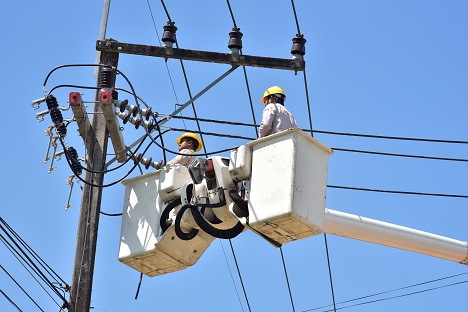Allentown, Pennsylvania-based electric utility PPL Corp. (NYSE: PPL) provides power to 10 million customers in the United States and the United Kingdom. It pays a $0.415 per share quarterly dividend, or $1.66 per year.
That comes out to a 5.7% yield, making PPL one of the highest-yielding utilities in the sector.
Can shareholders rely on that dividend in the future?
The answer is a little more complicated than it seems…
If you look at just the numbers, they seem pretty solid.
Though the company did not generate free cash flow last year (which is not uncommon for utilities due to their large capital expenditures), this year, PPL is forecast to generate $9 billion in free cash flow.
It’s expected to pay out $1.27 billion in dividends, so based on just the cash flow figures, PPL can easily afford its dividend.
The company has paid a dividend since 1946 and has raised it every year for 20 years.
So conventional analysis suggests the dividend should be safe – but a couple of corporate actions may prove otherwise.
In March, PPL said it is selling its U.K. business and is buying Narragansett Electric Company, a Rhode Island electric utility.
Here’s where it gets tricky. Management said that it plans to have a dividend payout ratio of 60% to 65% upon completion of both mergers, with no change prior to the closing of the Narragansett deal.
PPL expects a regulatory decision by November, so the acquisition likely won’t be completed until sometime in 2022.
While I calculate payout ratio using free cash flow because it’s more accurate, most of Wall Street bases it on earnings because it’s easier.
For 2022, analysts are predicting earnings of $1.66 per share. A 65% payout ratio comes out to a $1.08 per share dividend, sharply lower than the current $1.66.
The SafetyNet Pro model says the dividend is safe.
But SafetyNet Pro is purely a quantitative model. It is unable to take management’s comments into account.
For the immediate future, the dividend is safe. After the two deals close, it probably won’t be.
Dividend Safety Rating: A
(But again, that is for only the next few quarters. The dividend will likely be cut sometime next year.)
If you have a stock whose dividend safety you’d like me to analyze, leave the ticker symbol in the comments section.
Good investing,
Marc

